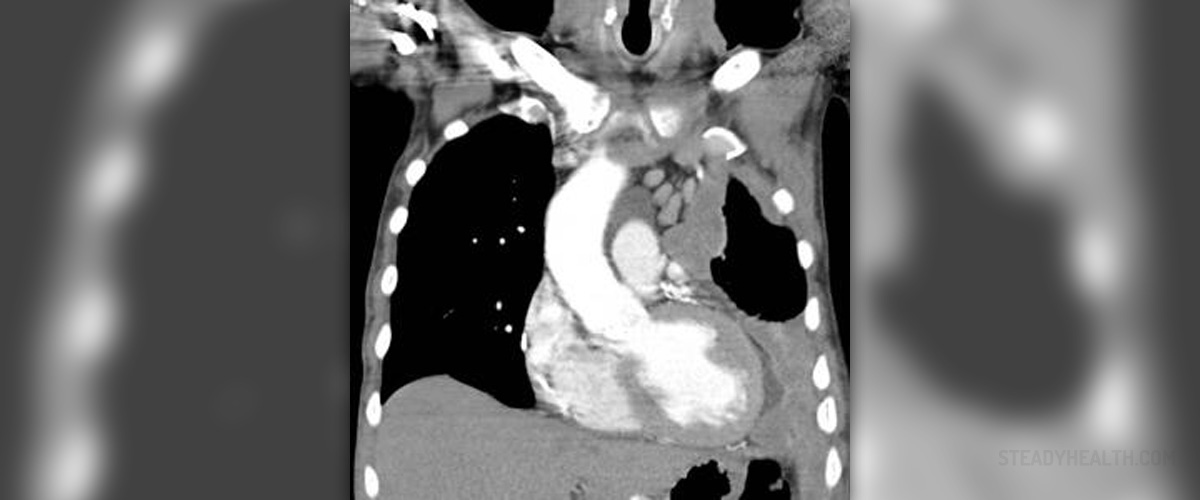
Mesothelioma is a malignant tumor made of cells that form the pleura, pericardium and peritoneum. Unlike peritoneal and pericardial mesothelioma pleural mesothelioma is strongly related to previous asbestos exposure. It is confirmed that exposure to this mineral can have various detrimental effects on the lung tissue including formation of malignant tumors of both lung tissue and the serous membrane surrounding the lungs (the pleura). This tumor may develop up to 25-45 years after exposure to asbestos and the risk of mesothelioma associated with heavy exposure to the mineral ranges from 7-10%.
Once the tumor occurs it starts to grow and hardens the pleura. It can eventually be so constrictive, to not allow the lung to expand properly, hence the patient develops difficulty breathing as one of the first symptoms of the tumor. Mesothelioma may spread to other parts of the pleura or to the lungs. The disease is usually diagnosed in advanced stages. This is why treatment is not very effective and the prognosis is not good.
Clinical Characteristics of Mesothelioma
Initially the tumor may grow and not have any apparent symptom or sign. Once the symptoms occur they may be over-looked because they resemble symptoms of other lung illnesses. Once the disease has significantly progressed the patient usually complains about pleuritic pain, prolonged cough, general weakness and weight loss. Breathing difficulties are common as well.
A doctor will perform a physical exam and take a chest X-ray, which will point to the presence of the tumor. However, better insight in the tumor (its precise location, the size, shape, presence of absence of metastases etc.) is achieved with a CT scan or MRI of the lungs. And finally, the tumor can be confirmed as mesothelioma only after it has been pathohistologically examined.
Mesothelioma - Treatment
This type of malignant disease can be treated in three different ways, these being, surgery, chemotherapy and radiation therapy. The patient undergoes one of them or a combination of two or even all three treatment approaches.
Potentially curative procedures for pleural Mesothelioma include pleurectomy and extrapleural pneumonectomy. Pleurectomy is performed in the early stages of the disease. Extrapleural pneumonectomy, a more radical procedure is usually combined with traditional chemotherapy and/ or radiation. On the other side, palliative surgical procedures include chest tube drainage and pleurodesis, thoracoscopy and pleurodesis and pleuroperitoneal shunt.
Chemotherapy for mesothelioma has several purposes. Its goal is to control the cancer by stopping its spread, shrink tumors prior other treatment options (surgery), destroy microscopic disease which may remain after surgery and finally, to relieve symptoms of advanced disease (palliative chemotherapy).
Radiation therapy is, in patients suffering from mesothelioma, applied aggressively in a combination with surgery and it may also be applied in advanced stages but then it acts as palliative treatment that controls symptoms of the advanced disease (metastases).

















Your thoughts on this
Loading...